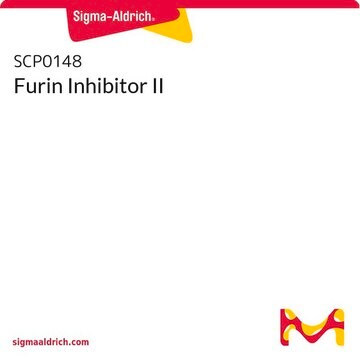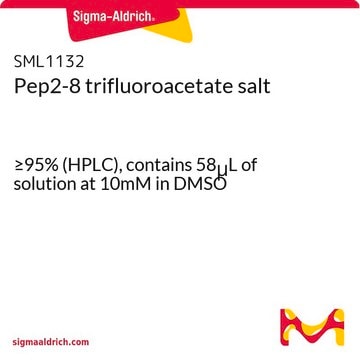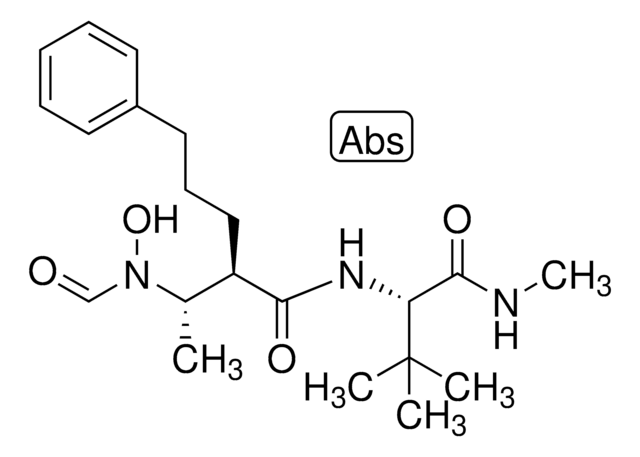344930
Furin Inhibitor I
≥90% (HPLC), solid, furin inhibitor, Calbiochem®
Sinónimos:
Furin Inhibitor I, Decanoyl-RVKR-CMK
About This Item
Productos recomendados
product name
Furin Inhibitor I, Furin Inhibitor I, is a peptidyl chloromethylketone that binds to the catalytic site of furin and blocks its activity.
Quality Level
assay
≥90% (HPLC)
form
solid
manufacturer/tradename
Calbiochem®
storage condition
OK to freeze
desiccated
color
off-white
solubility
methanol: 1 mg/mL
DMSO: soluble
shipped in
ambient
storage temp.
−20°C
General description
Biochem/physiol Actions
viral glycoproteins
Warning
Sequence
Physical form
Reconstitution
Other Notes
Wang, X., and Pei, D. 2001. J. Biol. Chem.276, 35953.
Capell, A., et al. 2000. J. Biol. Chem. 275, 30849.
Denault, J.B., et al. 1995. FEBS Lett. 362, 276.
Denault, J.B., et al. 1995. J. Cardiovasc. Pharmacol.26, S47.
Garten, W., et al. 1994. Biochimie 76, 217.
Hallenberger, S., et al. 1992. Nature 360, 358.
Stieneke-Gröber, A., et al. 1992. EMBO J. 11, 2407.
Legal Information
Storage Class
11 - Combustible Solids
wgk_germany
WGK 3
flash_point_f
Not applicable
flash_point_c
Not applicable
Certificados de análisis (COA)
Busque Certificados de análisis (COA) introduciendo el número de lote del producto. Los números de lote se encuentran en la etiqueta del producto después de las palabras «Lot» o «Batch»
¿Ya tiene este producto?
Encuentre la documentación para los productos que ha comprado recientemente en la Biblioteca de documentos.
Los clientes también vieron
Nuestro equipo de científicos tiene experiencia en todas las áreas de investigación: Ciencias de la vida, Ciencia de los materiales, Síntesis química, Cromatografía, Analítica y muchas otras.
Póngase en contacto con el Servicio técnico












